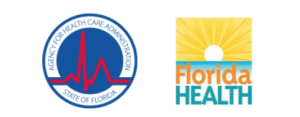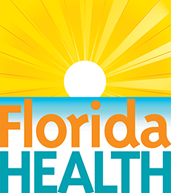The Florida Department of Health and State Board of Education. today issued Emergency Rules to protect parents’ freedom to choose what is best for their children. [Read more…] about Florida Department of Health and Florida Department of Education Publish Rules to Protect Parents’ Rights
Florida Department of Health
Florida’s Community Health Centers Team Up with Florida Department of Health to Combat COVID-19
Community Health Centers play pivotal role in public health response
Florida’s federally qualified health centers (FQHCs) quickly responded to the Florida Department of Health’s (DOH) request to partner with them on the effort to reduce the impact of the novel coronavirus (COVID-19). [Read more…] about Florida’s Community Health Centers Team Up with Florida Department of Health to Combat COVID-19
AHCA and DOH Recognize 19 Hospitals in Florida for Achieving the Healthy People 2020 Low-risk, Primary C-section Goal

The Agency for Health Care Administration (AHCA) and the Florida Department of Health (DOH) today announced that 19 hospitals in Florida have achieved the federal Healthy People 2020 Maternal and Child Health goal of reducing Cesarean section (C-section) rates for first-time mothers with low-risk pregnancies. [Read more…] about AHCA and DOH Recognize 19 Hospitals in Florida for Achieving the Healthy People 2020 Low-risk, Primary C-section Goal
Florida Surgeon General Announces New Agency Leadership

Florida Surgeon General Dr. Scott A. Rivkees today announced three appointments to the Department of Health’s executive leadership team. [Read more…] about Florida Surgeon General Announces New Agency Leadership
Gov. Scott and Florida Department of Health Announce Grant Funding for Alzheimer’s Disease Research
Governor Rick Scott and the Florida Department of Health today announced the 2018-2019 grant awards for 30 projects, totaling $4.8 million, to support research leading to the prevention and possible cure for Alzheimer’s Disease. [Read more…] about Gov. Scott and Florida Department of Health Announce Grant Funding for Alzheimer’s Disease Research
AHCA and DOH Recognize 20 Hospitals in Florida for Achieving the Healthy People 2020 C-section Rate Goal
The Agency for Health Care Administration (AHCA) and the Florida Department of Health (DOH) today announced that 20 hospitals in Florida have achieved the federal Healthy People 2020 Maternal and Child Health goal of reducing Cesarean section (C-section) rates for first-time mothers with low-risk pregnancies. [Read more…] about AHCA and DOH Recognize 20 Hospitals in Florida for Achieving the Healthy People 2020 C-section Rate Goal
New posting from the Florida Supreme Court, 5/15/2018, 5:45 p.m. ET
New material has been posted to the Supreme Court website in:
- Joseph Redner v. Florida Department of Health (new emergency writ petition filed with Supreme Court regarding Florida medical marijuana laws)
Follow the links at: floridasupremecourt.org.
Assisted living facilities, nursing homes and hospitals are receiving frequent wellness checks
Before, during and following Hurricane Irma, health care facilities throughout Florida have been implementing emergency plans to keep patients safe. The Florida Agency for Health Care Administration and the Florida Department of Health is conducting frequent and vigorous outreach to facilities every day, which includes daily calls with hospitals, nursing homes and assisted living facilities. In-person wellness checks are being conducted for facilities when contact cannot be made or any facility that reports distress. All facilities are being directed to contact 911 if patients are in jeopardy. AHCA is staffing the facility hotline 24 hours a day at 1-888-419-3456. Both AHCA and DOH are working around the clock to ensure all ALFs, nursing homes and hospitals have the resources they need.
Health care facilities have been provided with multiple pathways to communicate their needs with state officials and local emergency officials. This includes convening daily calls with facilities in advance of, during and after the storm. Reporting includes the online facility reporting database, FLHealthSTAT. These multiple mechanisms allow health care facilities to communicate needs to state emergency officials, including power outages, generator availability, fuel needs, spot coolers, ice and any other needs.
Hospitals, nursing homes, and assisted living facilities in Florida are required to have emergency operation plans. Requirements vary by facility type, but are all based in statute and rule. A complete list is available here. Hospitals, nursing homes and assisted living facilities are required to submit and receive approval for their plans from either the county emergency management or local county health department (this varies among counties and/or facility type).
Facilities that are not regulated by the state, such as retirement communities, are advised to call local emergency management or 911 if you are in need of support.
Power restoration remains a top priority for the state, particularly for facilities that serve vulnerable populations. As of this morning, more than 70% of power in the state has been restored.
STATUS AS OF 1 PM FRIDAY, SEPT. 15
Assisted Living Facilities:
193 are utilizing generators
1,978 have power
182 have reported as being closed
177 have reported post-storm evacuations
Nursing Homes:
34 are utilizing generators
669 have power
10 have reported being closed
40 have reported post-storm evacuations
Hospitals:
2 are utilizing generators
299 have power
8 have reported being closed
7 have reported post-storm evacuations
DOH urges residents in Monroe County to not drink contaminated water
Water under boil water notice is not safe to drink
As Monroe County works to recover from Hurricane Irma, the Florida Department of Health is urging residents in the Florida Keys to not consume water under a boil water notice.
At this time, water in Monroe County is unsafe for drinking and without electricity, residents are unable to boil water to decontaminate. Further, due to the storm, the overall sanitary conditions have been significantly impacted in the Florida Keys.
Unsafe drinking water and generally unsanitary conditions can lead to gastrointestinal illness, increased risk of infection and dehydration.
The department, along with local, state and federal partners, is working diligently to mobilize resources to the Florida Keys. Restoring power, safe drinking water and sound sanitary conditions are top priorities. Bottled water is being provided to residents who are currently in the Florida Keys. Also, portable toilets have been staged for use in multiple locations as sewer systems have been breached.
Practicing good hygiene is critical to preventing illness. Residents in the Florida Keys are urged to use alcohol-based hand sanitizer often and ensure that good hygiene practices are followed during food preparation.
Residents should not eat any food that may have come into contact with contaminated water from floods or tidal surges. Canned food should not be eaten if there is a bulging or opening on the can or screw caps, soda bottle tops or twist-caps. Undamaged, commercially canned foods can be saved if labels are removed and cans are disinfected in a bleach solution. Use 1/4 cup of bleach in 1 gallon of water; re-label the cans including expiration date and type of food. Infants should preferably be breast fed or fed only pre-mixed canned baby formula. Do not use powdered formulas prepared with untreated water, use boiled water instead. When the power is out, refrigerators will only keep foods cool for approximately 4 hours – thawed and refrigerated foods should be thrown out after 4 hours.
Local officials will announce when water is safe to drink.
For further information, please contact your local county health department or visit www.floridahealth.gov or www.FloridaDisaster.org.
During severe weather and other emergencies, you can count on active alerts from the department’s official social media accounts. One of the fastest ways to receive official and accurate health-related information is to monitor @HealthyFla on Twitter and on Facebook.
Department of Health urges caution with sewage, septic tanks after Hurricane Irma
Following the passage of Hurricane Irma, residents may be experiencing difficulties with your sewage system not functioning properly. If you have a septic system that operates by a dosing pump, it will not function without electricity. You should refrain from using water in your home until electricity is restored. Without the pump working, the septic tank will fill and may cause backup of sewage in your home.
General precautions:
- Do not let children play in flood waters as these waters may be contaminated by sewage.
- If you live in a low-lying or flood-prone area, the ground in your area may be saturated from heavy rainfalls or flooding from the hurricane. You should use household water as little as possible to prevent backup of sewage into your home
What should I do if sewage backs up into my home?
- If a sewage backup has occurred in your home, stay out of affected areas and keep children away. If your entire home has been saturated, evacuate the home until all affected areas, including but not limited to carpets, rugs, drywall, and baseboards, have been thoroughly cleaned and disinfected.
- If sewage has overflowed in open areas or streets, etc., avoid these areas and especially do not let children play in these areas.
- If you are having problems in areas served by public sewer systems, please contact your utility company to insure they are aware of problems in your area.
How to clean up sewage contaminated items and sewage spills inside your home:
- Wear protective clothing such as rubber boots and waterproof gloves.
- Clean walls, hard-surfaced floors, and other household surfaces with soap and water and disinfect with a solution of 1/4 cup of bleach in one gallon of water. Once cleanup is complete, dry out affected items to prevent the growth of mold.
- Do not mix ammonia cleansers with bleach as toxic vapors will form.
- Wash all linens and clothing in hot water or dry clean them.
- Discard Items that cannot be washed or dry cleaned, such as mattresses, carpeting, wall coverings and upholstered furniture.
For spills outside your home:
- Contact your utility or a registered septic tank contractor for clean up.
- Minor spills requiring immediate attention may be disinfected with regular garden lime from a garden shop. Follow the lime container’s label instructions for personal protective equipment needed. Use lime outdoors only.
- Sprinkle the lime onto the spill so the spill is dusted mostly white on the surface. If the residue is thicker in some places use a rake to mix the lime and the residue.
- After a day, rake up the thicker residue and place it in a trash bag for disposal with the other trash. Use a sprinkler or hose to water the lime and residue into the soil.
- Let the area dry in the sun for a day before allowing access. If there is still white lime dust visible on the yard, water it in until the white dust is gone.
Follow proper hygiene procedures to prevent illness:
- Keep hands and fingers away from the nose, mouth, eyes and ears.
- Wash hands with soap and water immediately after cleanup efforts as well as before eating or drinking.
- Keep fingernails short and clean. Use a stiff brush to remove dirt and foreign materials.
- Do not store fresh work clothes with used work clothes.
- Shower as soon as possible after cleaning up sewage or sewage contaminated flood waters.
For further information, please contact your county health department or visit http://www.floridahealth.gov/environmental-health/index.html or www.FloridaDisaster.org.
